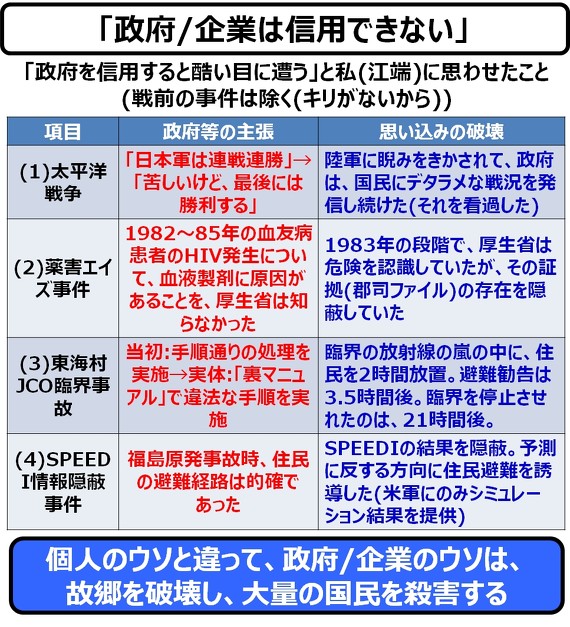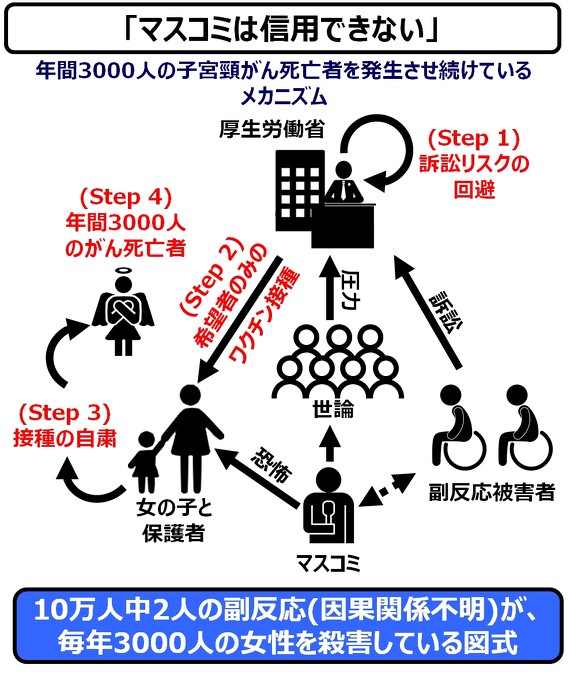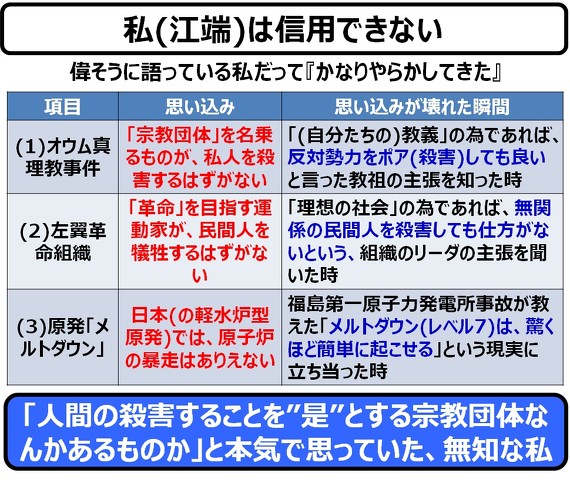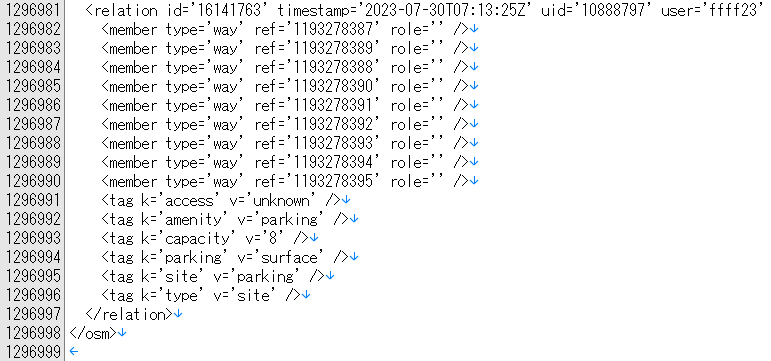太平洋戦争の敗戦の翌月、東久邇稔彦首相が「一億総懺悔」という、新しいコンセプトを打ち出しました。
In the month following the defeat in the Pacific War, Prime Minister Toshihiko Higashi Kuuni launched a new concept called "100 Million Repentance.
『日本をこんな悲劇に追い込んだのは、一体誰?』という、敗戦後に登場してくる国民感情、そしてGHQへのイクスキューズ(いい訳)を、戦後の新しい首相は、総括しなければならなかったのです ―― 気の毒なことに。
The new postwar prime minister had to sum up the public sentiment that emerged after the defeat and the ire of GHQ: "Who the hell drove Japan into this tragedy? " Sorry to hear that.
まず、普通に考えて、それらは、敗戦した上にそれを隠蔽し続けてきた軍部、それに協力したマスコミ、あたりです。
First, in the usual sense, they are the military, which lost the war and has continued to cover it up, and the media, which cooperated with the army.
しかし、軍を統括する統帥権の観点から言えば、当然、戦争責任は『天皇陛下』ということになってしまいます。
However, from the viewpoint of the authority of command over the military, the responsibility for the war naturally falls on "the Emperor."
が、これは、我が国にとっては、とてもマズかったのです。
But this wasn't good for our country.
現行憲法下においても、天皇陛下は、我が国最高位の「ルート認証局」であり、その認証局を含む認証システム全体が「天皇制」という仕組みになっております。
Even under the current Constitution, His Majesty the Emperor is the highest "root certification authority" in our country, and the entire certification system, including the certification authority, is structured as the "Emperor System.
ましてや、旧憲法(大日本帝国憲法)下においては、天皇性は「日本最大の与信システム」であるばかりではなく、多くの国民の精神的支柱でもありました。
Moreover, under the old constitution (the Constitution of the Empire of Japan), the emperor hold was not only "Japan's greatest credit system" but also a spiritual pillar for many people.
で、非常に興味深いことに、『天皇陛下なくして、占領政策は不可能』と判断した戦勝国アメリカ合衆国が、天皇陛下と天皇性を守るために、奔走しました(東京裁判)。
Interestingly, the victorious United States of America, which decided that the occupation policy would be impossible without the Εmperor, scrambled to protect the Εmperor and the Εmperor's nature (Tokyo Trials).
-----
「一億総懺悔」というのは、一言で言えば、戦争責任の国民全員への超分散処理です。
In a nutshell, "100 million repentance" is a hyper-distributed treatment of war responsibility to the entire nation.
これは、天皇陛下の戦争責任、という戦争責任の超集中処理に対するアンチテーゼとも言えるものでしょう。
This would be the antithesis of the hyper-centralized treatment of war responsibility, the Εmperor's war responsibility.
GHQが天皇制に手を出す"前"に、『戦争責任の超分散』という世論形成を狙ったものかもしれません。
This may have been an attempt to create public opinion that the responsibility for the war should be "super-distributed" before GHQ took action against the Emperor System.
もしそうだとしたら(私は、そうだと確信していますが)、なかなかに上手い戦略だ、と思います。
If that is the case (and I am sure it is), it is a perfect strategy.
-----
以前の私なら、「一億総懺悔」に対して『ふざけるな!』と怒鳴っていたと思うのですが、最近はそうでもありません。
I would have yelled at the "100 Million Penitents" in the past, "Screw you! But not so much these days.
なるほど、開戦したのは政府と軍部かもしれませんが、開戦を煽ったのはマスコミであり、踊ったのは日本国民です。
Okay, it may have been the government and the military that started the war, but the media incited the outbreak of war, and the Japanese people danced to it.
現時点の研究から、当時の政府や軍部の多くの人間が『米国と戦争? 正気か?』と考えていたことは、分かっています。
『太平洋戦争と同じような状況になれば、歴史の教訓があろうがなかろうが、私たちは再び開戦してしまう』
From the current research, many people in the government and military at the time were thinking, "War with the U.S.? Are you insane?"
そして、少数の開戦派の背中を押したのが、国民の世論だったことは、事実なのです。
「政府がいつもウソをつく」とは思っていませんが、戦争(国防)に関しては、どの政府も高い頻度でウソをつきます。
And it is a fact that public opinion supported the few who started the war.
-----
戦後、私たちは『勝てない戦争なら最初からやるな、バカ』という教えを金科玉条のごとく扱ってきました。
After the war, we have treated the teaching, "If you can't win the war, don't start it, you idiot," as if it were a golden rule.
そして、8月15日が近づくと、NHK特集が『勝てない戦争に挑んだバカな国、日本』を放送しています。
And as August 15 approaches, NHK's special program comes to air "Japan, the Stupid Country that Tried to Fight an Unwinnable War.
もちろん、これは正しくて、良いことです。
Of course, this is right and good.
いつだって、歴史のレビューは重要です。
At all times, the historical review is essential.
こういうドキュメント番組が途切れることなく、これからも毎年続けられることを期待します。
I hope this kind of documentary program will continue yearly without interruption.
-----
一方で、私たち日本人の根源的な政府(権力)への不信は、この時から始まったような気もしています。
On the other hand, I feel that the fundamental distrust of the government (power) among us Japanese began at this time.
戦前は勿論、戦後も、結構な頻度で、政府は私たちを騙してきましたからね。
The government has deceived us quite often before and after the war.

ちなみに、マスコミも。
And, the media is.

もちろん、私(江端)もです。
Of course, I (Ebata) am too.

-----
ただ、『完全に正直誠実な政府』というのも、それはそれで困るのです。
However, a 'government of complete honesty and integrity' is also a problem.
ウソやハッタリを効かせて、国民を上手いこと誘導し、外国を欺くことも、政府の大切な仕事だからです。
The government's essential job is to deceive the public and foreign countries by lying and bluffing.
とは言え、私がこの国で生きている限り『戦争当事者にならない政府』は重要です。
Nevertheless, as long as I live in this country, a government that is not a war party is essential.
例えば ――
For example--
(1)同盟国や価値観を同じにする国に対して、武器の提供はしないけど、
(1) We don't provide arms to allies or countries that share the same values, though,
(2)我が国が防衛戦争をする時に、は同盟国や価値観を同じにする国から武器を提供して欲しい
(2) When our country is fighting a defensive war, we want our allies and countries that share our values to provide us with weapons.
という、理不尽でわがままな言い分を続けれるように、です。
So that we can continue to be unreasonable and selfish.
各国から『日本って奴はしょうがねーな』と溜息をつかれ続けているとしても、それを続けられるように、政府にはがんばって貰いたいのです。
Even if countries keep sighing at us and saying, 'Japan, you are so annoying,' we want the government to keep up the excellent work so that we can keep doing it.
コンセプトは、『卑怯上等』です。
The concept is "sneaky is good."




